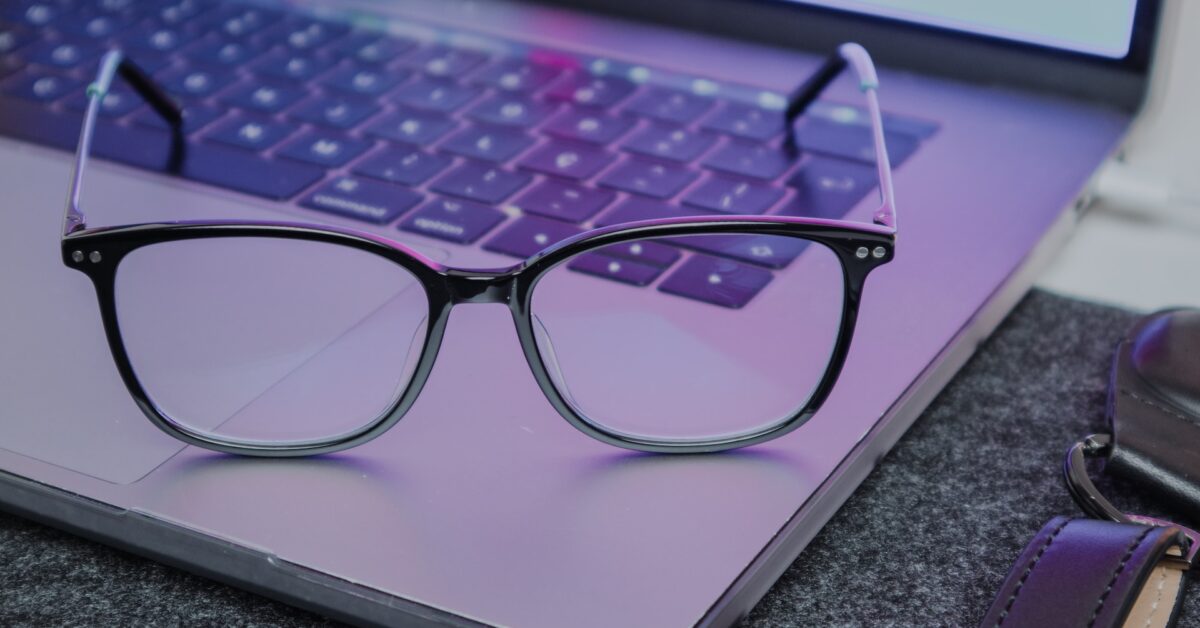Screens’ blue light may be bad for your eyes. It may disrupt sleep and result in eye strain. Blue-light-blocking eyewear helps shield the eyes from harm. The yellow tint in these glasses, made to seem like ordinary spectacles, helps to cut down on the quantity of blue light that reaches the eyes.
This could lessen eye fatigue and make reading and paying attention to jobs more straightforward. There is evidence that the glasses cure some symptoms of digital eye strain, which is how they are promoted.
Contents
Reduces Dry Eyes
If you’re concerned about dry eyes, try blue light glasses like those at Zenni Optical. These special lenses are designed to filter out blue light from digital devices, which can help reduce the irritation that some people experience when using their computers or other electronic devices.
In addition to wearing blue light glasses, you should blink frequently, use artificial tears when needed, and adjust your screen settings to reduce glare on your computer, tablet, or smartphone. Whether you’re you’re worried about eye strain or you want to be healthier, there are many things that you can do to improve your quality of life. While these changes may not completely alleviate your symptoms, they can significantly affect how you feel and function throughout the day.
Reduces Eye Strain
Blue light filters reduce digital eye strain by blocking some harmful shortwave blue light emitted from screens on computers, laptops, tablets, smartphones, and other electronic devices. Blue light glasses also help to prevent headaches, blurry vision, and dry eyes caused by too much screen time.
Many people who wear blue light glasses say they positively impact their health and well-being by improving their sleep quality and alleviating chronic headaches and other symptoms of screen overuse.
Improves Sleep
People with eye strain from spending extended time in front of screens frequently turn to blue light spectacles as a remedy. They are made to filter out the dangerous blue light emitted by LED, fluorescent, and digital screens.
Electronic gadget blue light has the potential to interfere with circadian rhythms and disturb regular sleep cycles. Insomnia and other issues may result from this. Scrolling through a phone or computer screen before bed can delay melatonin production, a hormone that helps us fall asleep and stay asleep. This can prevent you from getting the restful sleep needed to feel refreshed in the morning.
The best thing to do for eye health is to take small breaks from the screen and look away into the distance. Try the 20-20-20 rule, which means taking a break from the screen every 20 minutes and looking at something at least 20 feet away for 20 seconds.
Reduces Nighttime Eye Strain
The energy level of blue light is the greatest of all visible light, which can harm the retina and strain the eyes. Additionally, blue light disrupts your sleep cycle by preventing the creation of melatonin, a hormone that controls your waking and sleeping cycles.
Blue light glasses can help safeguard your eyes at night by blocking the damaging wavelengths of blue light. Most blue light glasses on the market now contain unique tints or coatings that prevent or filter out high-energy blue wavelengths. This lessens the signs of digital eye strain and might even improve sleep quality at night. It’s crucial to consult a doctor or optometrist if you get digital eye strain.
They can assess your symptoms and offer recommendations tailored to your particular needs. You can take several other steps to lessen eye strain and maintain the health of your eyes in addition to using blue light-blocking eyewear. Try to place screens, for instance, around 25 inches from your face or at arm’s length away. Take regular breaks, and moisten your eyes with artificial tears.
Reduces Glare
Blue wavelengths of light reflected from the retina are absorbed by blue-light spectacles, which lessen eye strain from glare. This lessens the glare reflected into the eye, which can be uncomfortable and give people headaches. Additionally, it can lessen the glare’s severity, improving your ability to see what is on your screen.
According to some scientists, prolonged exposure to blue light can harm the retina, resulting in macular degeneration. Numerous people report irritation and perhaps even pain in their eyes after spending hours in front of a computer or another device. This is referred to as computer vision syndrome or digital eye strain. Changing their screen resolution or applying a matte screen filter can provide relief for some folks. Others choose blue-light filters, which come in various designs and hues.
According to specific research, blue-light spectacles can help with symptoms of digital eye strain like dry eyes and discomfort. If you’re considering trying blue-light glasses, talk to your optometrist first. They can help you choose the right frame for your needs and advise on the best screen use practices. They can also advise on lens treatments that could be added to your prescription glasses to improve the comfort of screen use.

